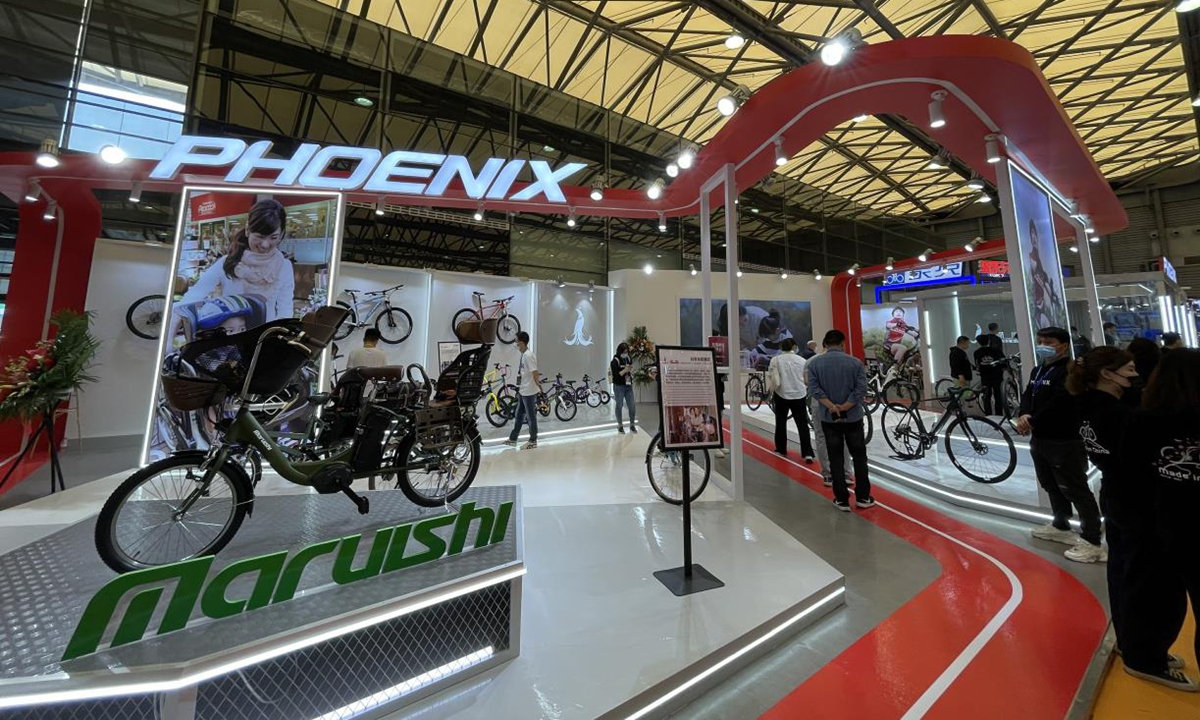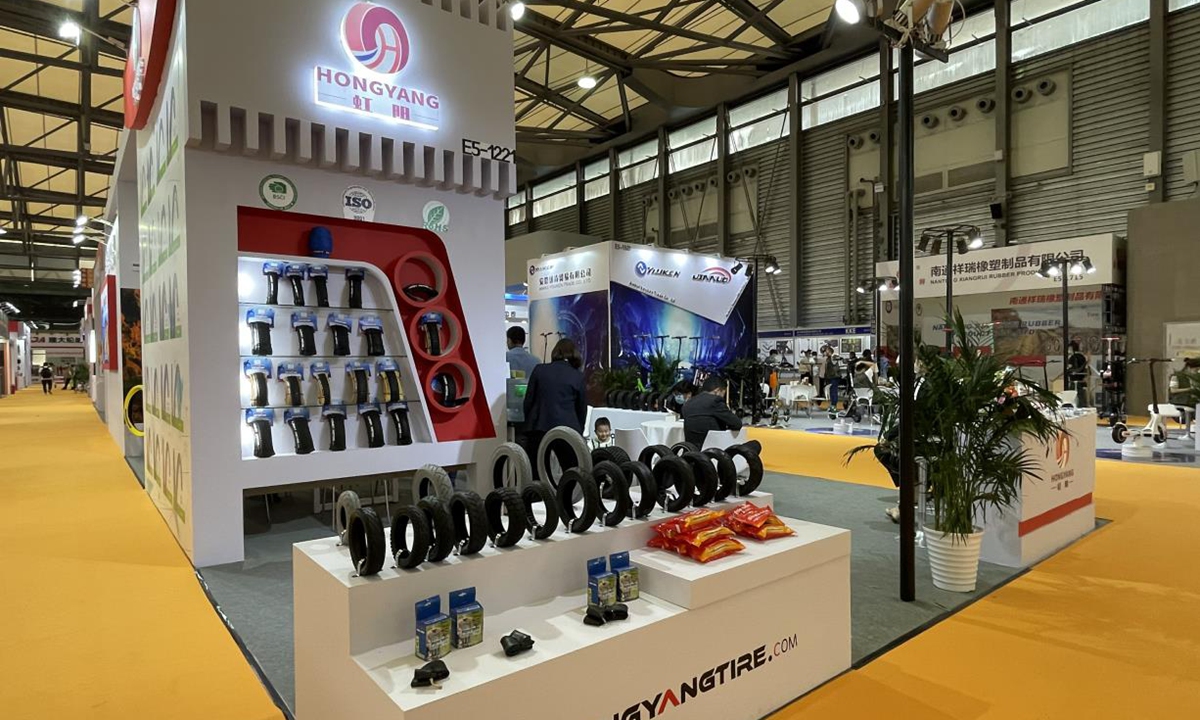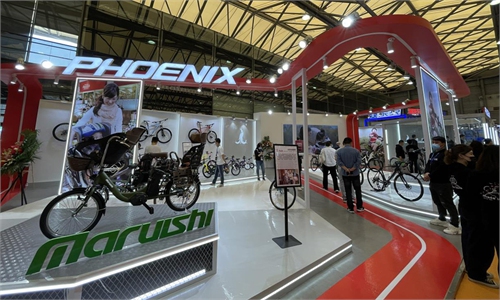
Bicycles and bicycles parts on display at the Shanghai International Bicycle Expo in Shanghai on Wednesday. Photo: Liu Caiyu/GT
The COVID-19 pandemic has fuelled demand for bicycles as a popular means of transportation and propelled exports across the entire industry in China, with some bicycle producers' orders piled up into next year.
The Global Times learnt from the China Bicycle Association and industry representatives attending the largest bicycle industry expo in Shanghai on Wednesday that despite the pandemic, China continues to be the biggest bicycle production and export base across the globe, with 60 percent of the total international trade generated from China.
Southeast Asian countries used to be the traditional markets for Chinese bicycle producers, but the severe pandemic situation overseas has helped open the gates for more bicycles to enter the US and European countries, industry representatives said.
Ji Xiaobing, a vice president of Shanghai Phoenix Bicycle Co, told the Global Times that they had very little trade with European nations before the pandemic, but now the brand has the opportunity to become better known by the general public in those countries.
New Phoenix products, such as Lithium moped bicycles, have become especially popular in European markets, as they address people's concerns of going out via public transportation while also providing the opportunity for some exercise, Ji noted.

Bicycles and bicycles parts on display at the Shanghai International Bicycle Expo in Shanghai on Wednesday. Photo: Liu Caiyu/GT
Liu Yinpeng, the head of Hebei Hongyang Tyre Co, told the Global Times that more traders from European countries have acquired their products through e-commerce platforms such as Alibaba and Amazon amid the epidemic.
"They have to wait at least six months for new orders to be delivered, even though we have doubled the daily production volume to 100,000 units this year," Liu said. To boost production capacity, Liu's company has been busy recruiting more employees and expanding production lines and ordering more facilities this year.
In addition to big bicycle producers, small businesses have also been experiencing exponential export growth through e-commerce platforms, the Global Times learned.
In the first quarter of 2021, a total of 16.19 million bicycles were exported, up 73.4 percent year on year; bringing the export volume to $1.06 billion, up 101.6% year on year, according to customs data.
In 2020, the total output of the entire industry was 116.54 million units, with a year-on-year growth of 15.3 percent. The China Bicycle Association predicts that China's bicycle and e-bike industries will grow by around 10 percent and 20 percent respectively in 2021.
"Bicycles could be said to be China's second largest commodities in terms of export growth after masks during the epidemic," Ji said.
Industry observers said the positive impact brought by the epidemic on China's bicycle industry would be a long term one, transforming the way people live and move around.
Besides the momentum brought by the epidemic, the industry is expected to continue to improve by expanding domestic markets and stimulating consumption, as China is promoting a dual circulation economy, the Global Times learned from the China Bicycle Association.
As the organizer of the event, the China Bicycle Association said the industry expo has seen the participation of 1,000 enterprises, smaller in scale than usual every year, due to restrictions on foreign customers entering China because of the epidemic.



